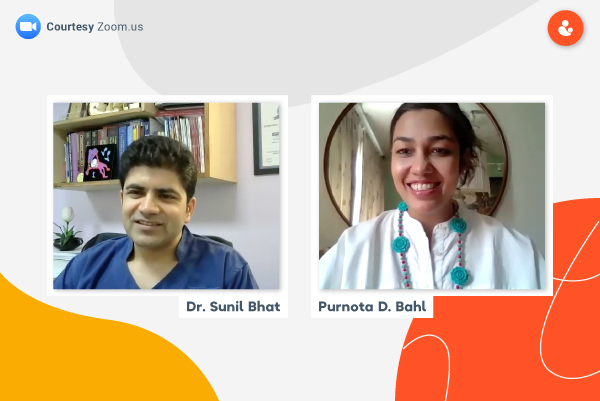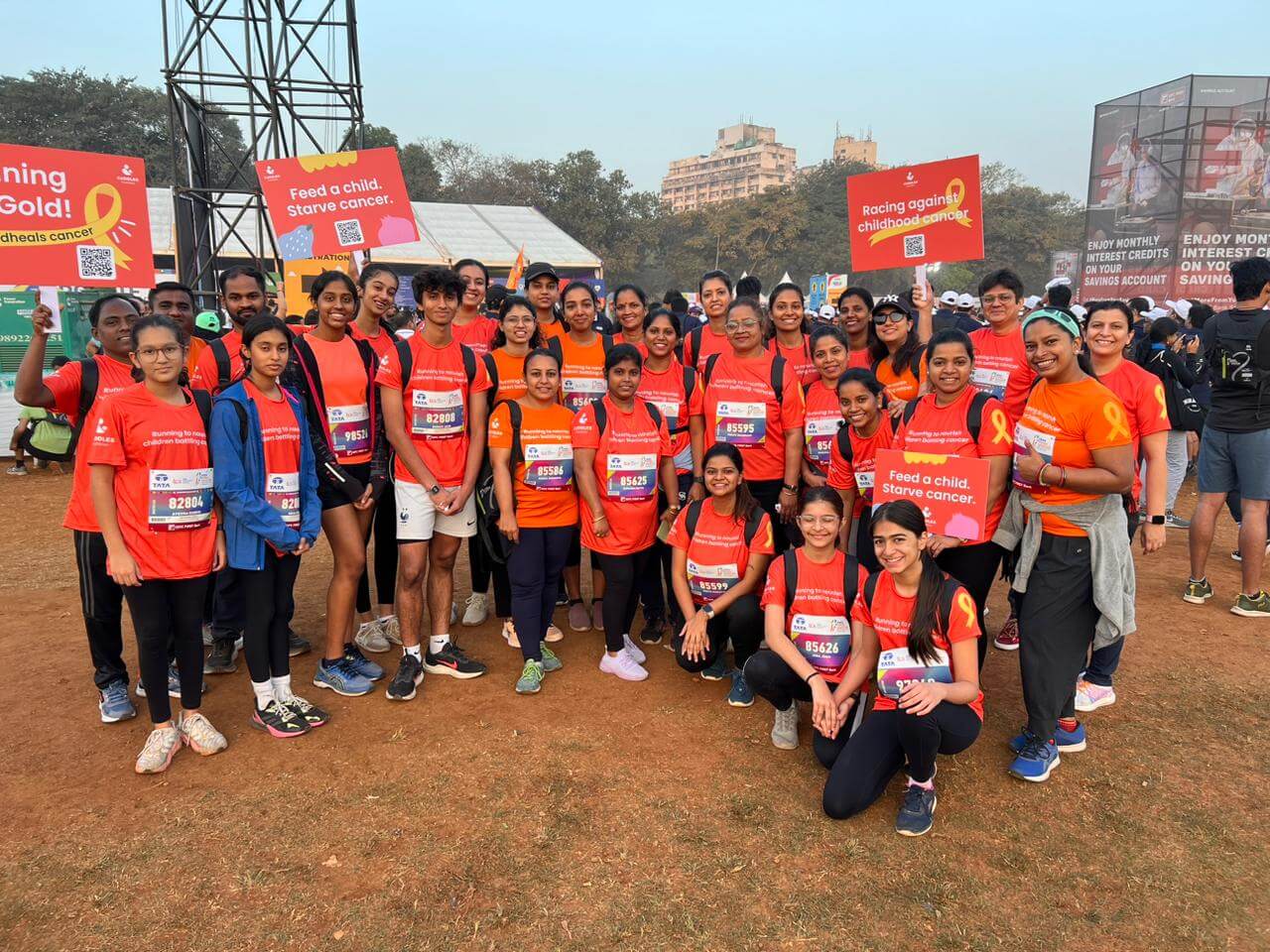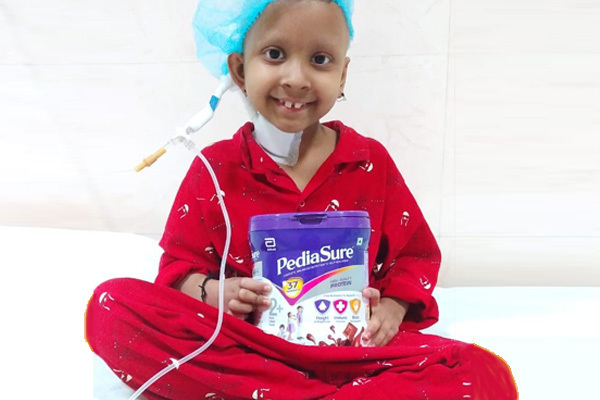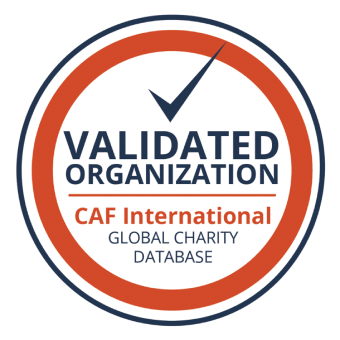Keeping in mind the present situation of COVID-19, Dr Sunil Bhat, answers questions asked by patients’ families, on how to take precautionary measures for children who have cancer during the lockdown. Our CEO & Founder, Purnota Datta Bahl, had a conversation with Dr Sunil Bhat. Dr Bhat is a Senior Consultant in Pediatric Hematology, Oncology, and Bone Marrow Transplantation at Mazumdar-Shaw Cancer Centre, Bengaluru. Cuddles Foundation has been working with the hospital for the last four years.
Here are some excerpts from the interview.
Purnota: I am delighted today to have a conversation with Dr Sunil Bhat. His primary interest is in blood and bone marrow transplant. He has carried out successful transplants for more than 1000 kids. Apart from this, he has authored many books and wrote many scientific guidelines as well.
As we all know, due to this pandemic people are unable to step out of their homes. Parents of children who are suffering from cancer have a lot of questions. At present, doctors are not easily available; they are busy working in the frontlines during the current situation. So we wanted to ask a few questions, specifically for parents, whose children have cancer.
The first question I would like to ask is if we have a child with cancer in our family, what special care should we take during this pandemic?
Doc: Thanks, Purnota; this is a critical question. I want to tell you that Coronavirus is an infection due to which all of us are at risk. This virus can infect all of us. Though majorly, it’s a mild infection, it means that 80% of people can recover from this infection, in 15-20% of people, this infection can be severe and in 2-3% of people, it can result in death. The risk of dying from this infection is comparatively less. There are a few special categories where the chances of getting this infection are more severe. For example, people who are above the age of 60 years, who have other health complications like diabetes, blood pressure, for them, the risk of death is higher. Another category where the risk is high is among the cancer patients. The reason behind this is, for curing any kind of cancer, patients undergo chemotherapy, which in turn makes the immune system weak. If your immune system is weak, your capacity for fighting the infection is low. That is why, for both adults and children who are suffering from cancer, it is expected that the infection due to COVID can be severe. That’s why we are trying to address this special category of patients with utmost care and precautions.
Purnota: Another problem that patients and their families are facing right now is that kids have to skip their chemotherapy sessions because of a lot of issues caused by the virus.
How will this affect their treatment, and what would you like to tell the parents?
Doc: This issue or problem, is a central issue. Skipping chemo sessions right now is a major issue when it comes to cancer care. I would like to divide it into three major categories; children visit the hospital for three major reasons –
- Children who are diagnosed with cancer and are undergoing active treatment.
- Others are those who have completed active treatment and have to visit the hospital for maintenance purposes.
- Lastly, there are patients who are done with the treatment, maintenance, and visit for follow-ups and surveillance.
Out of these, if we talk about the third category, who visit the hospitals for follow-ups, I would suggest that they do not come to hospitals right now. If needed, they can consult the oncologists on a voice or video call from home.
Secondly, children coming for maintenance, though a strict follow up is not needed but at the same time, it is important to keep a tab on blood count or general well-being. In this situation, the concept of shared care between the oncologist and paediatrician should be kept strong. If the CBC of the patient is supposed to happen every 15 days, they can go to the paediatrician and coordinate with the oncologist accordingly.
Children who are undergoing active treatment and chemotherapy, their situation is a crucial one. Doctors and oncologists believe that these children should continue with their treatment because childhood cancer is usually a very strong one and can spread easily. Neglecting the treatment at this point can put the child at risk. Therefore, we suggest that parents can consult the oncologist and work around the sessions with minor modifications. It is important for these kids to continue with the treatment.
With all these, I would like to suggest all the doctors and oncologists should stay in touch with the patients’ families and be available for them whenever possible. Staying connected with the families at this point is important.
Purnota: As parents, the most common question that comes to mind is, when we go outside to get daily essentials, there is a constant fear of getting infected from the outside environment. So, as a doctor, what advice would you like to give people who step out of the house, especially when there is a child cancer patient at home. What kind of precautionary measures are we supposed to take during this time?
Doc: I would like to suggest that such people step out only when necessary and keep the frequency of heading out of home, as low as possible. Also, keeping in mind the basic precautionary measures of using masks, practising social distancing, sanitising yourself well, and washing hands at regular intervals is very important. But, other than this if you visit high-risk areas such as hospitals, it is advisable to take a shower once you reach home.
Purnota: These days, we get to hear that it is not advisable to use ACs during this time. So, as a doctor, what would you like to say about this?
Doc: Yes, this is a common question, and a lot of people are not even using fans at home. I would like to say that there is no problem in using fans, ACs and coolers at this point in time. The problem is with centralized AC systems, for example, if someone is infected, the infection is likely to spread through AC ducts. But for people staying at home and using single unit ACs is not at all a problem.
Purnota: The last question that I would like to ask is, very soon in a lot of states, the lockdown will turn into a partial lockdown. So, once the lockdown is lifted, what are the major precautions we all are supposed to take?
Doc: Lockdown was very important to stop the virus from spreading further. The risk will still be there once the lockdown is lifted, but at the same time, it is essential due to various economic reasons. I would like to say that once the lockdown is lifted, we will have to continue taking all the precautionary measures. It will be important to continue with the precaution and prevention strategies post lockdown.
Purnota: Thank you. The most important message from this conversation is that, even after the lockdown is lifted, we should continue taking all the precautions and stay alert. One more thing that I would like to ask is if, for some reason, a child’s primary caregiver is not available, what kind of preparations are required?
Doc: Yes, this is a very important point, and when we try to counsel the families after the child’s diagnosis, we discuss this issue with them. We always try to guide them, that whatever the information and conversation take place about the treatment, it is important to keep another family member in the loop. This also helps in supporting family members of the patients.
Purnota: Thank you so much for taking out time and sharing this valuable information with us Dr Bhat.
Dr Sunil Bhat is a Senior Consultant in Pediatric Hematology, Oncology, and Bone Marrow Transplantation at Mazumdar-Shaw Cancer Centre, Bengaluru.





